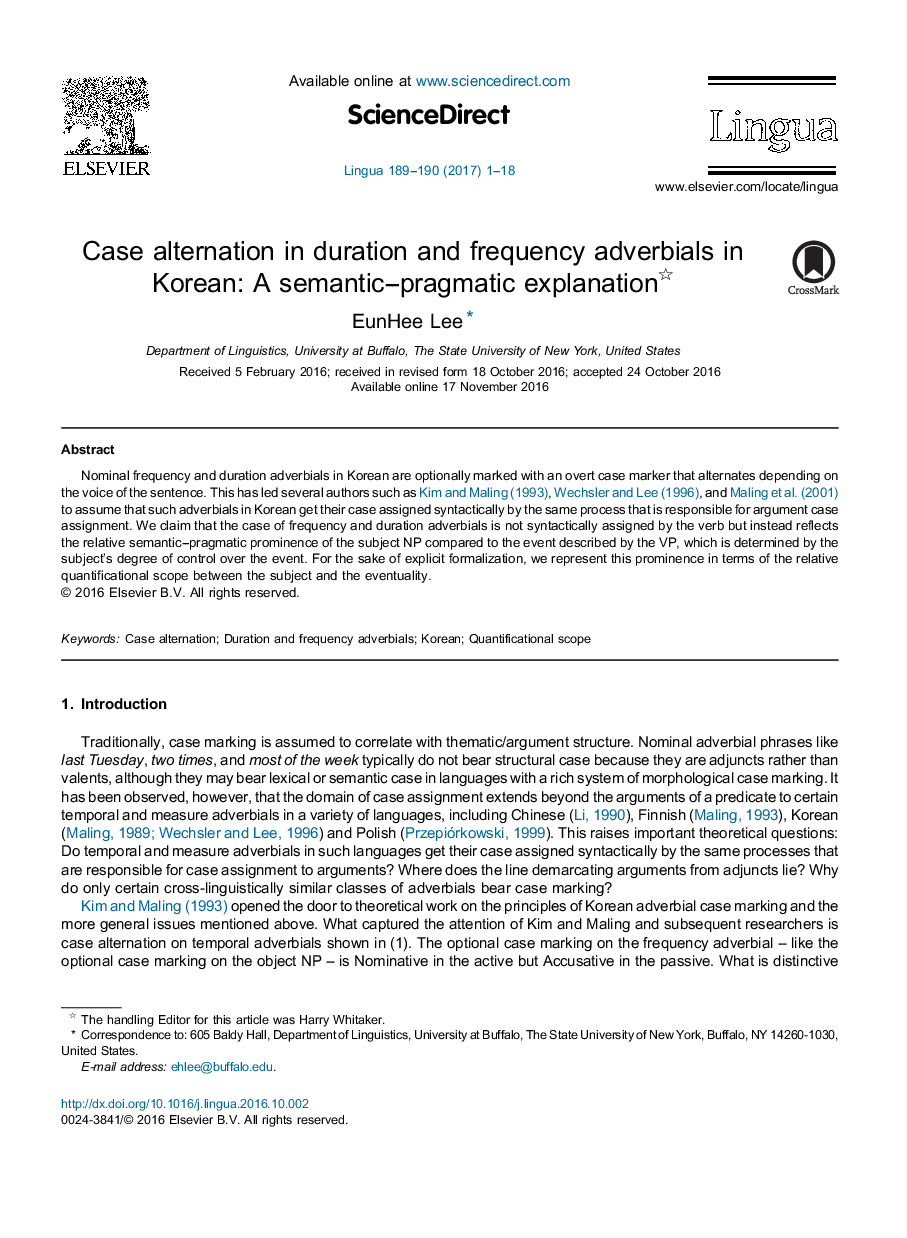| Article ID | Journal | Published Year | Pages | File Type |
|---|---|---|---|---|
| 5043013 | Lingua | 2017 | 18 Pages |
â¢The case on duration and frequency adverbials in Korean is not assigned by the verb syntactically.â¢The case alternation indicates the relative prominence between the subject and the event.â¢Adverbial case marking encodes the speaker's ability of foregrounding one element over the other.â¢A native speaker survey and its statistical analysis support such conclusion.
Nominal frequency and duration adverbials in Korean are optionally marked with an overt case marker that alternates depending on the voice of the sentence. This has led several authors such as Kim and Maling (1993), Wechsler and Lee (1996), and Maling et al. (2001) to assume that such adverbials in Korean get their case assigned syntactically by the same process that is responsible for argument case assignment. We claim that the case of frequency and duration adverbials is not syntactically assigned by the verb but instead reflects the relative semantic-pragmatic prominence of the subject NP compared to the event described by the VP, which is determined by the subject's degree of control over the event. For the sake of explicit formalization, we represent this prominence in terms of the relative quantificational scope between the subject and the eventuality.
